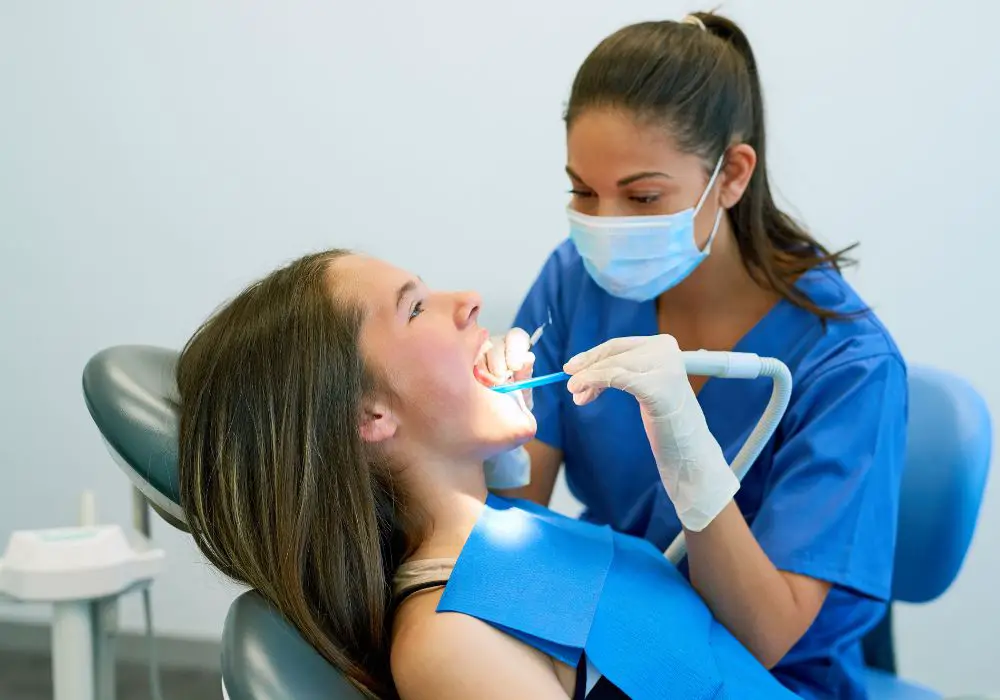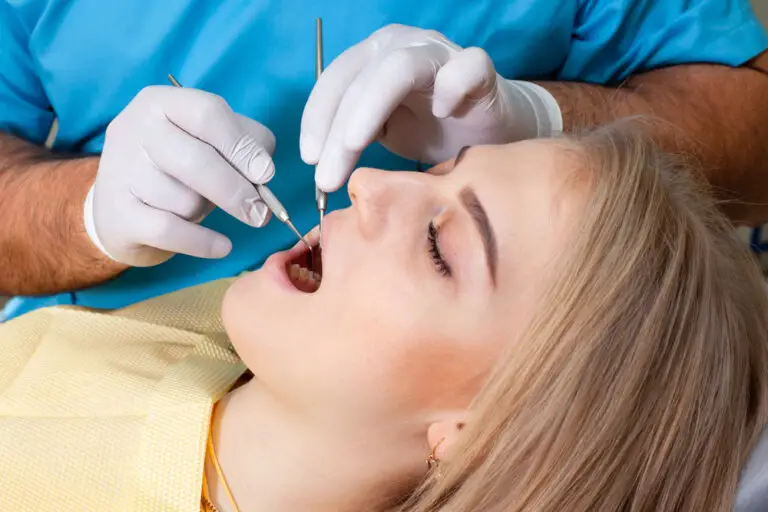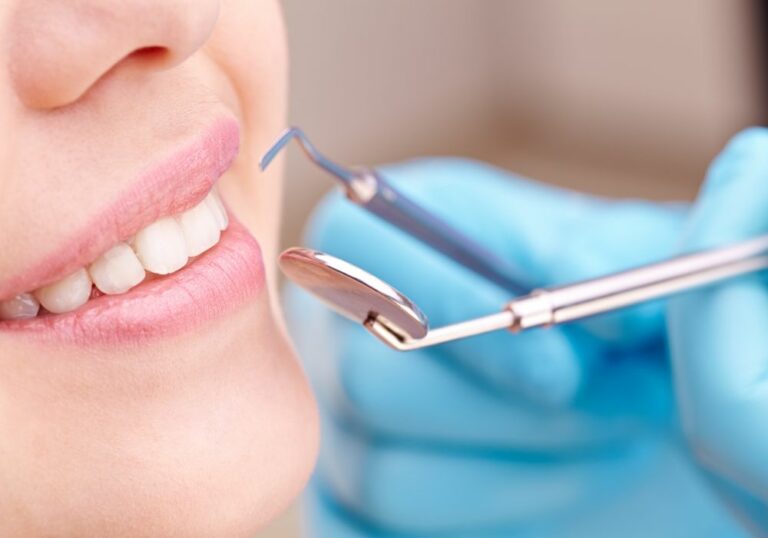If you’re like most people, you probably have some questions about wisdom teeth. What are they? When do they come in? And most importantly, when should you get them removed? Wisdom teeth are the third molars that typically emerge in the back of your mouth during your late teens or early twenties. While some people don’t have any problems with their wisdom teeth, others experience pain, infection, or other dental issues that require removal.
So, when should you get your wisdom teeth removed? The answer depends on a variety of factors, including the size and position of your teeth, your age, and your overall dental health. Many dentists recommend removing wisdom teeth at a younger age, before the roots and bone are fully formed. This can make the procedure easier and less painful, and can reduce the risk of complications. However, some people may not need to have their wisdom teeth removed at all, especially if they are not causing any problems.
Understanding Wisdom Teeth
What are Wisdom Teeth?
Wisdom teeth are the third molars that typically appear in the late teenage years or early twenties. These teeth are located at the back of the mouth, behind the second molars. Most people have four wisdom teeth, but some may have fewer or none at all.
Why Do We Have Wisdom Teeth?
Anthropologists believe that wisdom teeth were necessary for our early ancestors, who had larger jaws and needed the extra molars to grind tough, fibrous foods. However, as our diets have evolved and our jaws have become smaller, wisdom teeth are no longer necessary for most people.
In fact, wisdom teeth can often cause problems such as overcrowding, impaction, infection, and decay. This is why many dentists recommend having wisdom teeth removed before they cause problems.
While it is possible to keep wisdom teeth and monitor them for potential issues, it is important to understand the risks and benefits of doing so. Your dentist can help you make an informed decision about whether to keep or remove your wisdom teeth.
Overall, understanding the purpose and potential problems associated with wisdom teeth can help you make an informed decision about when to have them removed.
Signs You May Need Your Wisdom Teeth Removed
If you are experiencing any of the following signs, it may be time to consider having your wisdom teeth removed:
Pain and Discomfort
One of the most common signs that you may need your wisdom teeth removed is pain and discomfort. This can include pain in your gums, jaw, or teeth. You may also experience headaches or earaches as a result of your wisdom teeth.
Infection Risk
When your wisdom teeth do not fully emerge from your gums, they can create a space for bacteria to grow and cause an infection. This can lead to swelling, redness, and pain in your gums. If you notice any signs of infection, such as pus or a bad taste in your mouth, it is important to seek medical attention right away.
Crowding and Misalignment
If your mouth is not large enough to accommodate your wisdom teeth, they can cause crowding and misalignment of your other teeth. This can lead to bite problems, difficulty chewing, and even damage to your other teeth.
If you are experiencing any of these signs, it is important to consult with your dentist or oral surgeon to determine if wisdom teeth removal is necessary. By removing your wisdom teeth, you can prevent future dental problems and ensure the health of your teeth and gums.
The Right Age for Wisdom Teeth Removal

If you’re wondering when to get your wisdom teeth removed, it’s important to consider your age. Most dentists recommend that you have your wisdom teeth removed between the ages of 16 and 25. This is because at this age, the roots and bone of your wisdom teeth are not fully developed, making the extraction process easier and less painful.
If you wait too long to have your wisdom teeth removed, you may experience complications. For example, if your wisdom teeth are impacted, they can cause pain, swelling, and infection. In some cases, impacted wisdom teeth can even damage adjacent teeth or cause cysts or tumors.
On the other hand, if you have your wisdom teeth removed too early, you may not need the procedure at all. Some people’s wisdom teeth grow in without causing any problems, and removing them unnecessarily can lead to complications such as dry socket or nerve damage.
Ultimately, the decision of when to have your wisdom teeth removed should be made in consultation with your dentist or oral surgeon. They can evaluate your individual situation and recommend the best course of action based on your age, the position of your wisdom teeth, and any other relevant factors.
In summary, the best age to have your wisdom teeth removed is typically between 16 and 25. However, every person’s situation is unique, so it’s important to consult with a dental professional to determine the best timing for your specific case.
Consulting Your Dentist
If you are experiencing any discomfort or pain in your wisdom teeth, it is essential to consult your dentist. They will be able to examine your teeth and determine if they need to be removed. Here are some things you can expect during your consultation:
Initial Examination
During your initial examination, your dentist will examine your teeth and take X-rays to determine the position of your wisdom teeth. They will also look for signs of infection, decay, or gum disease. If your wisdom teeth are impacted, meaning they are trapped beneath your gum line, your dentist may recommend removal.
Discussion of Symptoms
Your dentist will also ask about any symptoms you may be experiencing, such as pain, swelling, or difficulty opening your mouth. They may also ask about your medical history and any medications you are taking. This information will help them determine the best course of action for your situation.
If your dentist recommends removing your wisdom teeth, they will discuss the procedure with you and answer any questions you may have. They may also provide you with instructions on how to prepare for the procedure and what to expect during recovery.
Overall, consulting your dentist is the best way to determine if you need to have your wisdom teeth removed. They will be able to provide you with personalized recommendations based on your individual needs and circumstances.
The Removal Process

If your dentist or oral surgeon has recommended the removal of your wisdom teeth, you may be wondering what to expect during the removal process. Here is a brief overview of what you can expect before, during, and after the surgery.
Preparation
Before your wisdom teeth removal surgery, your dentist or oral surgeon will likely give you instructions on how to prepare for the procedure. This may include:
- Fasting for a certain amount of time before the surgery
- Avoiding smoking or using tobacco products for a certain amount of time before and after the surgery
- Arranging for someone to drive you home after the surgery
- Taking any prescribed medications as directed
It is important to follow these instructions carefully to ensure a successful surgery and smooth recovery.
The Surgery
During the wisdom teeth removal surgery, you will be given anesthesia to help you stay comfortable and pain-free. Your dentist or oral surgeon will then make incisions in your gums to access the wisdom teeth and remove them. Depending on the position of the teeth, they may need to be cut into smaller pieces to be removed more easily.
The length of the surgery will depend on the number and position of your wisdom teeth. After the teeth have been removed, your dentist or oral surgeon will place gauze over the extraction site to help stop any bleeding.
Post-Surgery Care
After the surgery, it is important to follow your dentist or oral surgeon’s instructions closely to ensure proper healing and minimize the risk of complications. This may include:
- Applying ice packs to your face to reduce swelling
- Taking pain medication as directed
- Eating soft foods and avoiding hard, crunchy, or spicy foods for a few days
- Avoiding smoking or using tobacco products for at least 24 hours after the surgery
- Rinsing your mouth gently with warm salt water to help keep the extraction site clean
It is also important to keep the extraction site clean to prevent infection. Your dentist or oral surgeon may recommend using a special mouthwash or oral irrigator to help keep the area clean.
Overall, the wisdom teeth removal process can vary depending on your individual situation. However, by following your dentist or oral surgeon’s instructions carefully and taking proper care of the extraction site, you can help ensure a smooth and successful recovery.
Potential Complications and How to Avoid Them
While wisdom teeth removal is a common procedure, it still carries some risks. Here are some potential complications that you should be aware of:
- Dry socket: This occurs when the blood clot that forms in the socket where the tooth was removed becomes dislodged or dissolves before the wound has healed. This can cause severe pain and delay the healing process. To avoid dry socket, avoid smoking, drinking through a straw, or spitting for at least 24 hours after surgery. Also, make sure to follow your dentist’s instructions for aftercare, including rinsing your mouth gently with warm salt water.
- Infection: Infection can occur if bacteria enter the wound after the surgery. Signs of infection include fever, swelling, and severe pain. To prevent infection, make sure to keep the wound clean by following your dentist’s instructions for aftercare. You may also be prescribed antibiotics to take after the surgery.
- Nerve damage: The wisdom teeth are located near nerves that control sensation and movement in the face, mouth, and tongue. In rare cases, the removal of wisdom teeth can cause nerve damage, which can result in numbness, tingling, or loss of sensation in the affected area. To avoid nerve damage, make sure to choose a skilled and experienced dentist or oral surgeon.
- Bleeding: Some bleeding after surgery is normal, but excessive bleeding can be a sign of a problem. To avoid excessive bleeding, avoid drinking alcohol or taking aspirin or other blood-thinning medications before the surgery. Also, make sure to follow your dentist’s instructions for aftercare, including applying pressure to the wound with gauze.
By following your dentist’s instructions for aftercare and taking steps to avoid potential complications, you can minimize your risk of experiencing problems after wisdom teeth removal.
Alternatives to Wisdom Teeth Removal

While wisdom teeth removal is often recommended, there are some alternatives that may be considered depending on your specific situation. Here are some alternatives to wisdom teeth removal:
Monitoring
If your wisdom teeth are not causing any pain or other issues, your dentist may recommend monitoring them closely to see if they cause any problems in the future. This may involve regular check-ups and X-rays to ensure that the wisdom teeth are not causing any damage to nearby teeth or gum tissue.
Medication
If your wisdom teeth are causing pain or discomfort, your dentist may recommend over-the-counter pain relievers such as ibuprofen or acetaminophen. In some cases, prescription pain medication may be necessary.
Extraction of Nearby Teeth
In some cases, the removal of a nearby tooth may be necessary to make room for a wisdom tooth to grow in properly. This may be recommended if the wisdom tooth is not impacted and is expected to grow in straight.
Orthodontic Treatment
If your wisdom teeth are causing crowding or other issues with your bite, your dentist may recommend orthodontic treatment such as braces or Invisalign. This can help to realign your teeth and create more space for the wisdom teeth to grow in properly.
Root Canal Therapy
If a wisdom tooth is causing an infection or other issues, root canal therapy may be recommended as an alternative to extraction. This involves removing the infected or damaged pulp from the tooth and filling it with a special material to prevent further damage.
It is important to note that these alternatives may not be suitable for everyone and that wisdom teeth removal may still be necessary in some cases. Your dentist or oral surgeon can help you determine the best course of action based on your individual needs and circumstances.
Frequently Asked Questions
What is the recommended age to have wisdom teeth removed?
The recommended age to have wisdom teeth removed is generally between the ages of 17 and 25. This is because at this age, the roots of the wisdom teeth are not fully formed, making the extraction process easier and less painful. However, the timing of the removal may vary depending on individual circumstances and the advice of your dentist or oral surgeon.
Is wisdom teeth removal a painful procedure?
Wisdom teeth removal is a surgical procedure, so some discomfort and pain can be expected during and after the procedure. However, your dentist or oral surgeon will use local anesthesia and/or sedation to minimize pain and discomfort during the procedure. After the procedure, you may experience some swelling and discomfort, but this can be managed with pain medication and ice packs.
How many wisdom teeth do people typically have?
Most people have four wisdom teeth, one on each side of the upper and lower jaw. However, some people may have fewer or more wisdom teeth, or even none at all.
Are there any risks associated with keeping wisdom teeth that don’t hurt?
Yes, there are risks associated with keeping wisdom teeth that don’t hurt. Wisdom teeth can cause problems such as infection, gum disease, tooth decay, and damage to adjacent teeth. In some cases, wisdom teeth can also become impacted, meaning they are stuck beneath the gum line and cannot emerge properly. This can cause pain, swelling, and infection.
What is the recovery time for wisdom teeth removal?
The recovery time for wisdom teeth removal varies depending on the individual and the complexity of the procedure. Generally, you can expect to experience some swelling and discomfort for a few days after the procedure. It is important to follow your dentist’s or oral surgeon’s post-operative instructions, which may include taking pain medication, using ice packs, and avoiding certain foods and activities. Most people are able to return to their normal activities within a week or two after the procedure.
What are the disadvantages of removing wisdom teeth?
There are some potential disadvantages to removing wisdom teeth, such as the risk of complications during the procedure, such as nerve damage or infection. Additionally, some people may experience prolonged bleeding or pain after the procedure. However, these risks are generally low, and the benefits of removing wisdom teeth to prevent future problems usually outweigh the risks.







